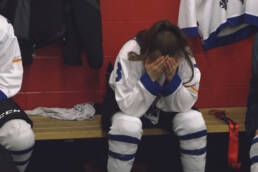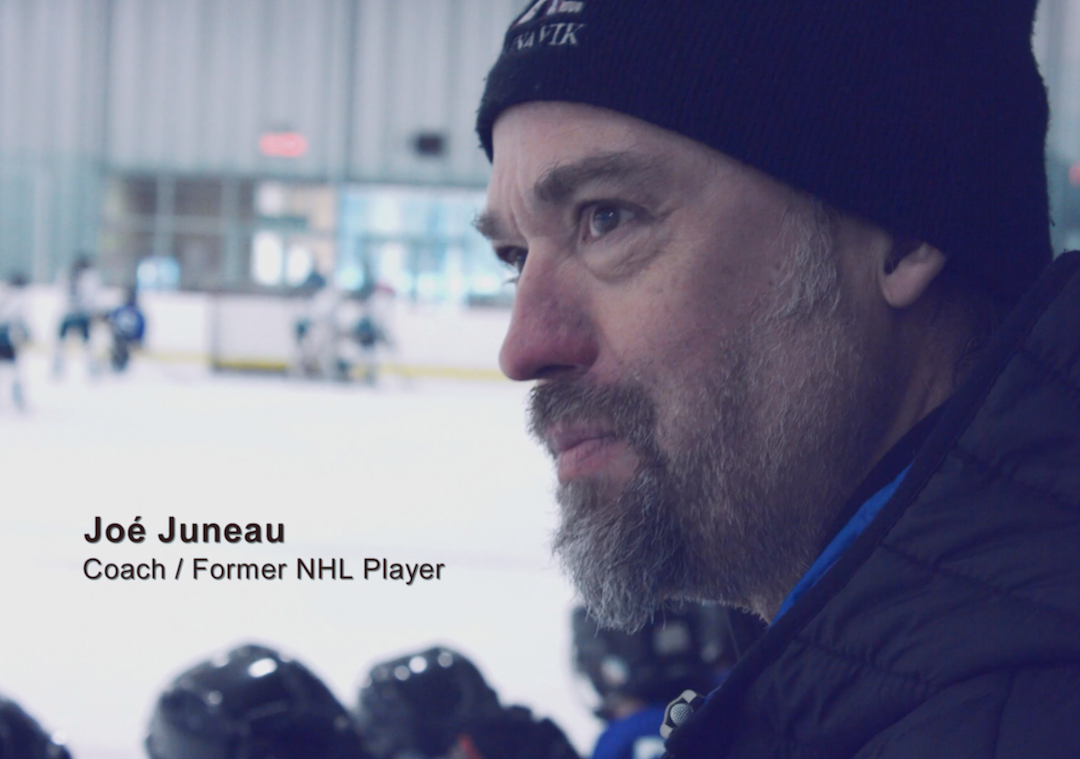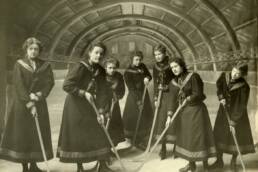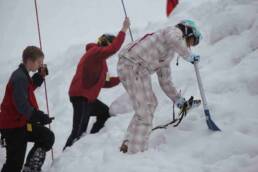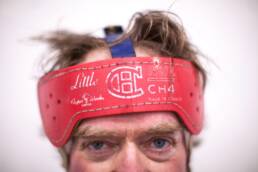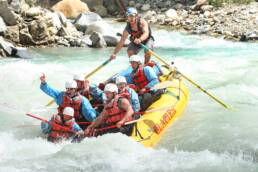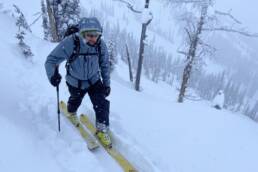When the Nunavik Youth Hockey Development Program was cancelled, filmmaker Jonnie Broi decided to do a documentary about how vital it was for the kids. This is the film and our Q&A with him.
In 2017 a program started by former NHL player Joé Juneau was cancelled. During the 11 years the Nunavik Youth Hockey Development Program operated, the benefits for the children of Nunavik (the area that comprises the northern third of the province of Quebec) were immeasurable. When we here at Mountain Culture Group first heard about the plight of these kids, we decided to help share this story. Not just because filmmaker Jonnie Broi is a buddy of ours, but because we believe all Canadian children should have access to hockey – no matter where they live.
We connected with Broi to ask him why this issue was so important to him, despite having never been to Nunavik before, and you can read our interview below.
Please help us share this story too, with the hopes the Nunavik Nordiks will be reinstated, allowing Inuit children an opportunity to achieve in sport.
Hey Jonnie. Thanks for connecting with us. What’s your background in film?
I have been producing and directing film and videos for over 15 years creating branded content for clients.
What’s your connection to Nunavat?
I’ve actually never been to Nunavik. We were hoping to go there and continue the story one day. But I’ve done a tonne of research on the region and it fascinates me.
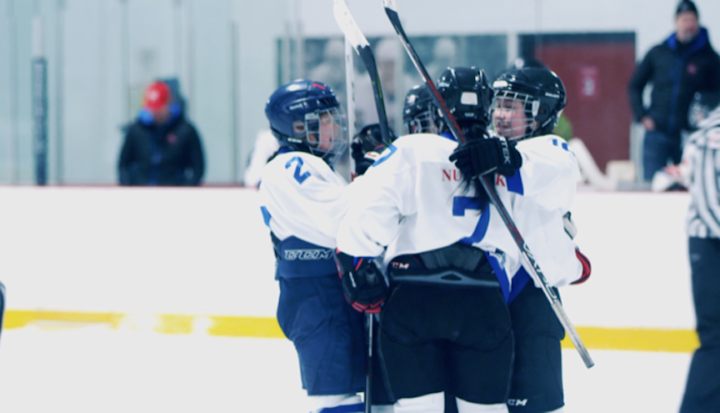 What inspired you to create this film then?
What inspired you to create this film then?
A close colleague has ties to former NHL player Joé Juneau who was the coach of the Nunavik Nordiks team and founder of the Nunavik Youth Hockey Development Program. We were going to film a documentary on Joé’s impact over the 11 years he operated this program to benefit the youth of Nunavik. The Inuit translation for coach is “man behind the bench chewing gum” which is what our documentary was going to be based on: the impact of a coach in youth hockey creating future coaches, specifically Joé’s program. Then we found out that the funding to Joé’s program, particularly for the “select” teams or all star teams, was being wiped out. With only a few days to gather our things we rallied to Ottawa to document the girls team in their last tournament together. It was literally one of those moments where we knew we had to drop everything to capture this story to make sure it would not go untold.
Because it was a sensitive time for the girls having found out that their program was being cut and this was their last tournament together, Joé didn’t want us to have cameras close to them out of respect, which we completely agreed with. But it was a huge challenge to tell the story without close access to the players. My colleague Hack jumped on a plane early and went to meet the team in Ottawa to see what we could capture. The girls ended up loving him; they thought he was fun and funny and they welcomed us in. I then jumped on a plane with another camera operator and sound tech to film the weekend’s tournament and as the weekend progressed the girls became more and more comfortable with us and that is how we were able to capture the team moments we did.
How long did it take you to create the film?
The film was captured in one weekend, with a couple cameras and a DJI Osmo, which is a fantastic tool that allows you to be up close with people and not have them be intimidated by a camera.
What was one of the most interesting challenges for making it?
Once we captured the story, the editing came next. With no funding, we knew it was going to take some time to cut this piece together and as more time passed we realized that the program was not coming back. We needed to do whatever it took to get this story edited together. A friend who I created a few TV series with in Australia came on board to edit the film with me. He is a talented editor who knows story, and was the key in bringing this to life.
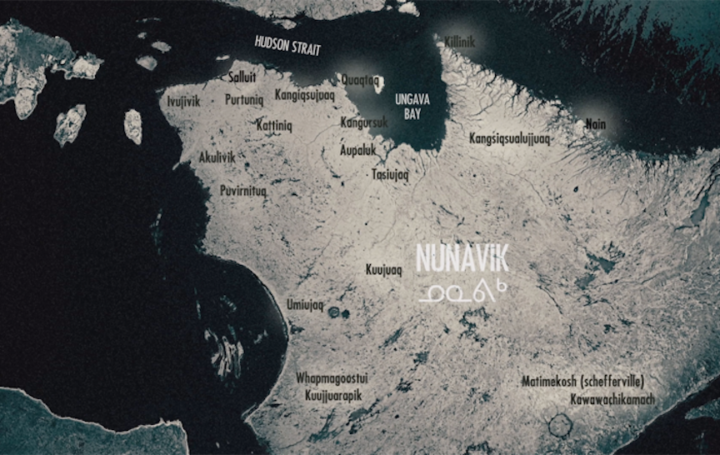 What’s the chance of the Select team being reinstated?
What’s the chance of the Select team being reinstated?
At this point, I am very hopeful it’ll be reinstated. That is our goal to raise enough awareness that the government or corporate sponsors will step in and realize the immense benefit this All Star program has for the younger kids looking up to the players and giving them something to strive for in athletics. The kids have few opportunities in that region for sport and hockey is the big one, and to not have a program where the kids can dream of playing on the Select/All Star team and beyond is really sad to me. In youth hockey all around North America, parents drive their kids to the local arena and tournaments. Imagine in Nunavik there are no roads connecting communities. The kids have limited opportunities and drugs, alcohol, abuse and suicide are prevalent. The team captain had just lost a friend to suicide a few days before we met her. The suicide rate is alarming there! That is why this All Star program to me is so vital, it gives kids hope and something to dream of. It’s an expensive program to run because the kids have to fly to tournaments and their region is remote. But the cost is greatly outweighed by the social benefits of the Inuit children in my opinion.
What can people do to help?
What people can do to help is to share this video, we are hopeful that the right people see this and we can get this program reinstated either through government funding or corporate sponsorship or a combination of both. I was blown away by how respectful and kind the girls were in the face of such adversity and having their program stripped away. It’s not rocket science to see the benefits that this program has, and the fact that the funding was cut to me is, as hockey Hall of Fame writer Roy MacGregor says, “is a tragedy.”
[Editor’s note: Roy MacGregor’s article about the Nunavik Youth Hockey Program’s demise that appeared in the Globe and Mail can be read online here.]
Related Stories
Named for a 1900’s Female Hockey Team, Red Mountain Resort’s “The Crescent” is the Future of Alpine Living
The Crescent is a new condo development project with 102 homes at Red Mountain Resort in Rossland, British Columbia.…
Is This The Worst Hockey Helmet In Canada?
Let's give thanks no one wears equipment like this anymore. Because as one East Kootenay man recalls, a little NHL…
Help Save Access To The Lower Kicking Horse River!
Outfitters in Golden, British Columbia, need our help to ensure access to the lower Kicking Horse River – a stretch of…
How Flylow Gear Can Help You Soar
Flylow Gear is a Colorado-based brand that's dedicated to the backcountry. But does it stand up to the rigours of runs…


